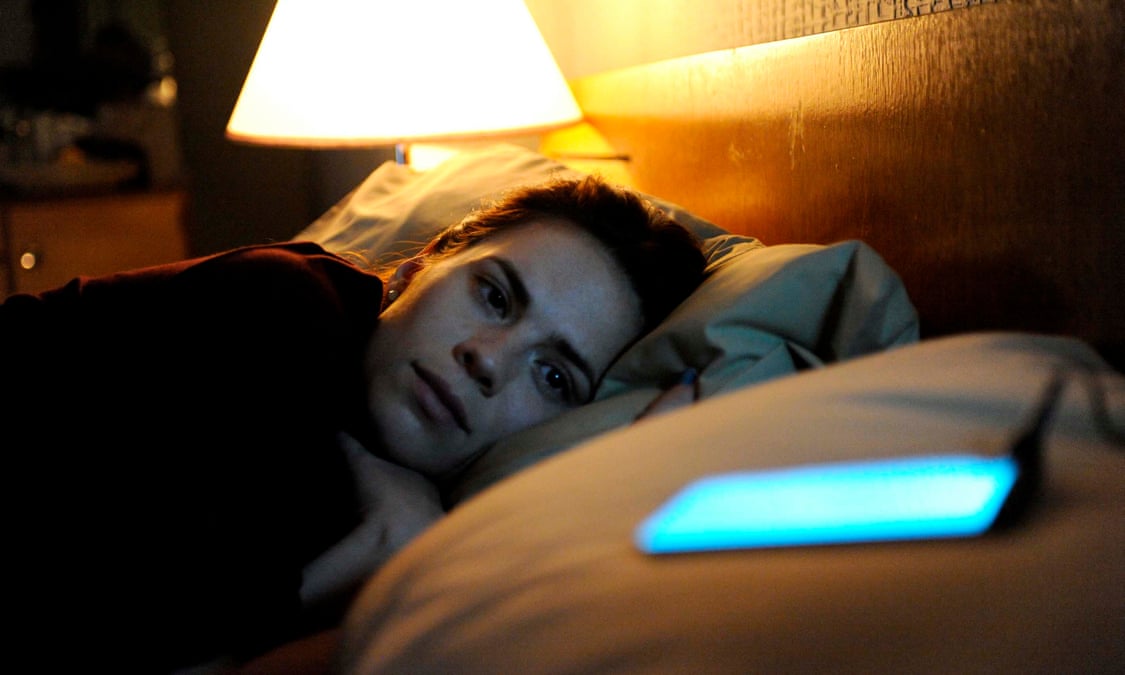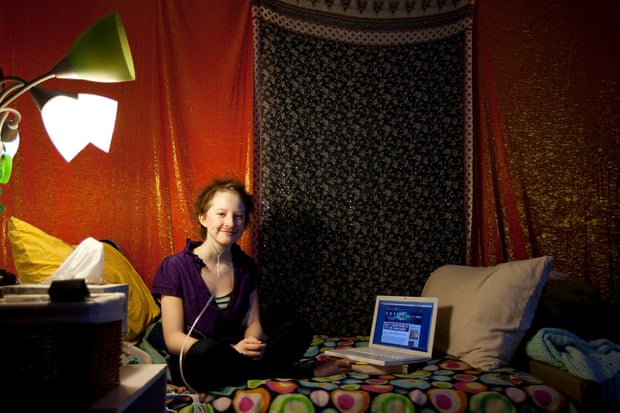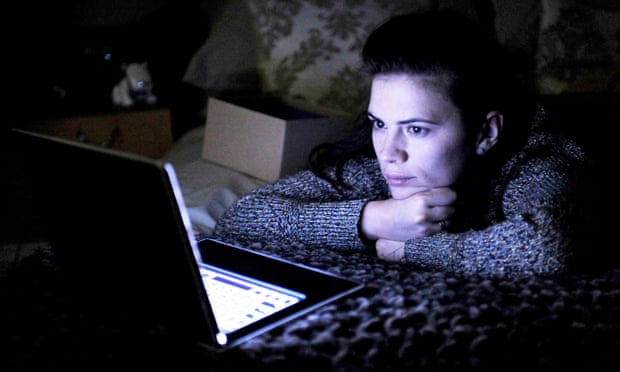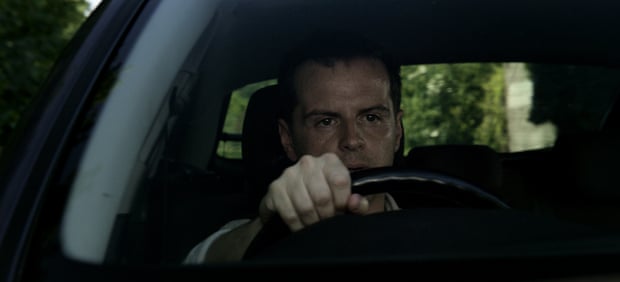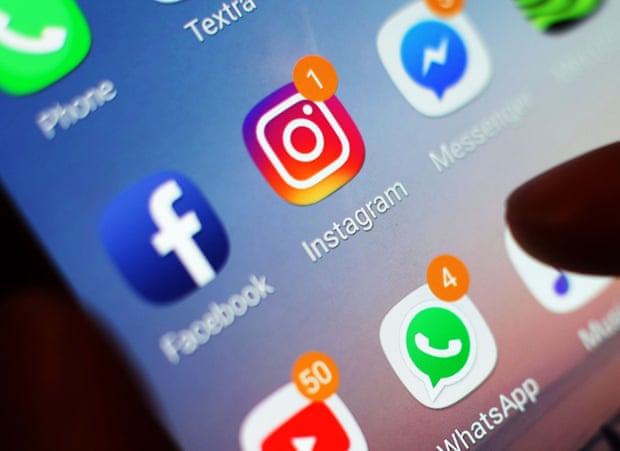Esther Earl never meant to tweet after she died. On 25 August 2010, the 16-year-old internet vlogger died after a four-year battle with thyroid cancer. In her early teens, Esther had gained a loyal following online, where she posted about her love of Harry Potter, and her illness. Then, on 18 February 2011 – six months after her death – Esther posted a message on her Twitter account, @crazycrayon.
“It’s currently Friday, January 14 of the year 2010. just wanted to say: I seriously hope that I’m alive when this posts,” she wrote, adding an emoji of a smiling face in sunglasses. Her mother, Lori Earl from Massachusetts, tells me Esther’s online friends were “freaked out” by the tweet.
“I’d say they found her tweet jarring because it was unexpected,” she says. Earl doesn’t know which service her daughter used to schedule the tweet a year in advance, but believes it was intended for herself, not for loved ones after her death. “She hoped she would receive her own messages … [it showed] her hopes and longings to still be living, to hold on to life.”
Although Esther did not intend her tweet to be a posthumous message for her family, a host of services now encourage people to plan their online afterlives. Want to post on social media and communicate with your friends after death? There are lots of apps for that! Replika and Eternime are artificially intelligent chatbots that can imitate your speech for loved ones after you die; GoneNotGone enables you to send emails from the grave; and DeadSocial’s “goodbye tool” allows you to “tell your friends and family that you have died”. In season two, episode one of Black Mirror, a young woman recreates her dead boyfriend as an artificial intelligence – what was once the subject of a dystopian 44-minute fantasy is nearing reality.
But although Charlie Brooker portrayed the digital afterlife as something twisted, in reality online legacies can be comforting for the bereaved. Esther Earl used a service called FutureMe to send emails to herself, stating that her parents should read them if she died. Three months after Esther’s death, her mother received one of these emails. “They were seismically powerful,” she says. “That letter made us weep, but also brought us great comfort – I think because of its intentionality, the fact that she was thinking about her future, the clarity with which she accepted who she was and who she hoped to become.”
Because of the power of Esther’s messages, Earl knows that if she were dying, she would also schedule emails for her husband and children. “I think I would be very clear about how many messages I had written and when to expect them,” she adds, noting they could cause anxiety for relatives and friends otherwise.
Yet while the terminally ill ponder their digital legacies, the majority of us do not. In November 2018, a YouGov survey found that only 7% of people want their social media accounts to remain online after they die, yet it is estimated that by 2100, there could be 4.9bn dead users on Facebook alone. Planning your digital death is not really about scheduling status updates for loved ones or building an AI avatar. In practice, it is a series of unglamorous decisions about deleting your Facebook, Twitter and Netflix accounts; protecting your email against hackers; bestowing your music library to your friends; allowing your family to download photos from your cloud; and ensuring that your online secrets remain hidden in their digital alcoves.
“We should think really carefully about anything we’re entrusting or storing on any digital platform,” says Dr Elaine Kasket, a psychologist and author of All the Ghosts in the Machine: Illusions of Immortality in the Digital Age. “If our digital stuff were like our material stuff, we would all look like extreme hoarders.” Kasket says it is naive to assume that our online lives die with us. In practice, your hoard of digital data can cause endless complications for loved ones, particularly when they don’t have access to your passwords.
“I cursed my father every step of the way,” says Richard, a 34-year-old engineer from Ontario who was made executor of his father’s estate four years ago. Although Richard’s father left him a list of passwords, not one remained valid by the time of his death. Richard couldn’t access his father’s online government accounts, his email (to inform his contacts about the funeral), or even log on to his computer. For privacy reasons, Microsoft refused to help Richard access his father’s computer. “Because of that experience I will never call Microsoft again,” he says.
Compare this with the experience of Jan-Ole Lincke, a 24-year-old pharmaceutical worker from Hamburg whose father left up-to-date passwords behind on a sheet of paper when he died two years ago. “Getting access was thankfully very easy,” says Lincke, who was able to download pictures from his father’s Google profile, shut down his email to prevent hacking, and delete credit card details from his Amazon account. “It definitely made me think about my own [digital legacy],” says Lincke, who has now written his passwords down.
Yet despite growing awareness about the data we leave behind, very few of us are doing anything about it. In 2013, a Brighton-based company called Cirrus Legacy made headlines after it began allowing people to securely leave behind passwords for a nominated loved one. Yet the Cirrus website is now defunct, and the Guardian was unable to reach its founder for comment. Clarkson Wright & Jakes Solicitors, a Kent-based law firm that offered the Cirrus service to its clients, says the option was never popular.
“We’ve been aware for quite a period now that the big issue for the next generation is digital footprints,” says Jeremy Wilson, head of the wills and estates team at CWJ. “Cirrus made sense and ticked a lot of boxes but, to be honest, not one client has taken us up on it.”
Wilson also notes that people don’t know about the laws surrounding digital assets such as the music, movies and games they have downloaded. While many of us assume we own our iTunes library or collection of PlayStation games, in fact, most digital downloads are only licensed to us, and this licence ends when we die.
What we want to do and what the law allows us to do with our digital legacy can therefore be very different things. Yet at present it is not the law that dominates our decisions about digital death. “Regulation is always really slow to keep up with technology,” says Kasket. “That means that platforms and corporations like Facebook end up writing the rules.”
In 2012, a 15-year-old German girl died after being hit by a subway train in Berlin. Although the girl had given her parents her online passwords, they were unable to access her Facebook account because it had been “memorialised” by the social network. Since October 2009, Facebook has allowed profiles to be transformed into “memorial pages” that exist in perpetuity. No one can then log into the account or update it, and it remains frozen as a place for loved ones to share their grief.
The girl’s parents sued Facebook for access to her account – they hoped to use it to determine whether her death was suicide. They originally lost the case, although a German court later granted the parents permission to get into her account, six years after her death.
“I find it concerning that any big tech company that hasn’t really shown itself to be the most honest, transparent or ethical organisation is writing the rulebook for how we should grieve, and making moral judgments about who should or shouldn’t have access to sensitive personal data,” says Kasket. The author is concerned with how Facebook uses the data of the dead for profit, arguing that living users keep their Facebook accounts because they don’t want to be “locked out of the cemetery” and lose access to relatives’ memorialised pages. As a psychologist, she is also concerned that Facebook is dictating our grief.
“Facebook created memorial profiles to prevent what they called ‘pain points’, like getting birthday reminders for a deceased person,” she says. “But one of the mothers I spoke to for my book was upset when her daughter’s profile was memorialised and she stopped getting these reminders. She was like, ‘This is my daughter, I gave birth to her, it’s still her birthday’.”
While Facebook users now have the option to appoint a “legacy contact” who can manage or delete their profile after death, Kasket is concerned that there are very few personalisation options when it comes to things like birthday reminders, or whether strangers can post on your wall. “The individuality and the idiosyncrasy of grief will flummox Facebook every time in its attempts to find a one-size-fits-all solution,” she says.
Matthew Helm, a 27-year-old technical analyst from Minnesota, says his mother’s Facebook profile compounded his grief after she died four years ago. “The first year was the most difficult,” says Helm, who felt some relatives posted about their grief on his mother’s wall in order to get attention. “In the beginning I definitely wished I could just wipe it all.” Helm hoped to delete the profile but was unable to access his mother’s account. He did not ask the tech giant to delete the profile because he didn’t want to give it his mother’s death certificate.
Conversely, Stephanie Nimmo, a 50-year-old writer from Wimbledon, embraced the chance to become her husband’s legacy contact after he died of bowel cancer in December 2015. “My husband and I shared a lot of information on Facebook. It almost became a bit of an online diary,” she says. “I didn’t want to lose that.” She is pleased people continue to post on her husband’s wall, and enjoys tagging him in posts about their children’s achievements. “I’m not being maudlin or creating a shrine, just acknowledging that their dad lived and he played a role in their lives,” she explains.
Nimmo is now passionate about encouraging people to plan their digital legacies. Her husband also left her passwords for his Reddit, Twitter, Google and online banking accounts. He also deleted Facebook messages he didn’t want his wife to see. “Even in a marriage there are certain things you wouldn’t want your other half to see because it’s private,” says Nimmo. “It worries me a little that if something happened to me, there are things I wouldn’t want my kids to see.”
When it comes to the choice between allowing relatives access to your accounts or letting a social media corporation use your data indefinitely after your death, privacy is a fundamental issue. Although the former makes us sweat, the latter is arguably more dystopian. Dr Edina Harbinja is a law lecturer at Aston University, who argues that we should all legally be entitled to postmortem privacy.
“The deceased should have the right to control what happens to their personal data and online identities when they die,” she says, explaining that the Data Protection Act 2018 defines “personal data” as relating only to living people. Harbinja says this is problematic because rules such as the EU’s General Data Protection Regulation don’t apply to the dead, and because there are no provisions that allow us to pass on our online data in wills. “There can be many issues because we don’t know what would happen if someone is a legacy contact on Facebook, but the next of kin want access.” For example, if you decide you want your friend to delete your Facebook pictures after you die, your husband could legally challenge this. “There could be potential court cases.”
Kasket says people “don’t realise how much preparation they need to do in order to make plans that are actually able to be carried out”. It is clear that if we don’t start making decisions about our digital deaths, then someone else will be making them for us. “What one person craves is what another person is horrified about,” says Kasket.
Esther Earl continued to tweet for another year after her death. Automated posts from the music website Last.fm updated her followers about the music she enjoyed. There is no way to predict the problems we will leave online when we die; Lori Earl would never have thought of revoking Last.fm’s permissions to post on her daughter’s page before she died. “We would have turned off the posts if we had been able to,” she says.
Kasket says “the fundamental message” is to think about how much you store digitally. “Our devices, without us even having to try, capture so much stuff,” she says. “We don’t think about the consequences for when we’re not here any more.”
• Black Mirror season 5 launches on Netflix on 5 June.
(For the source of this, and many other quite interesting articles, please visit: https://www.theguardian.com/tv-and-radio/2019/jun/02/digital-legacy-control-online-identities-when-we-die/)









